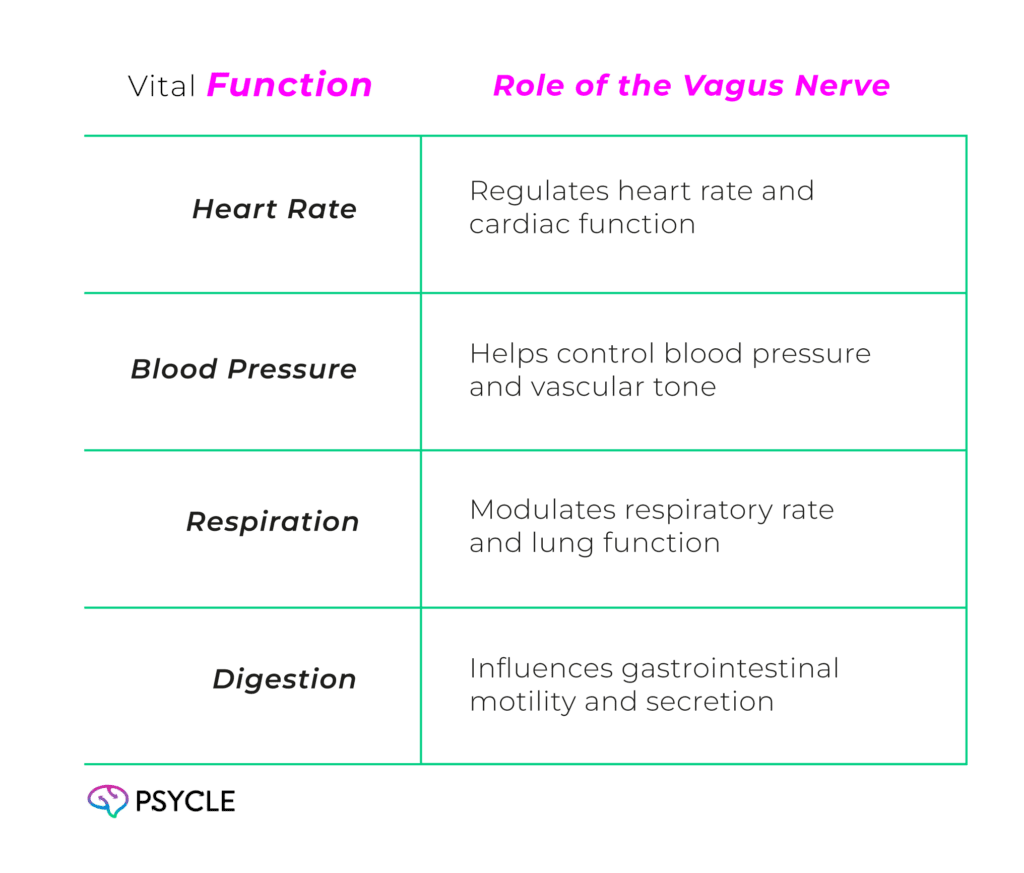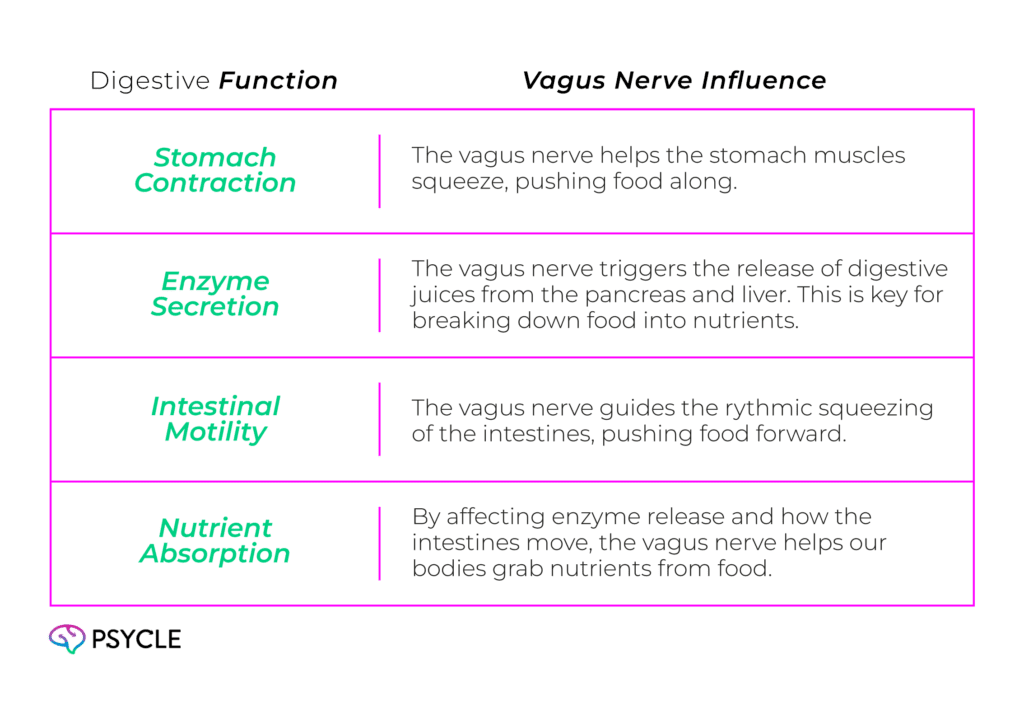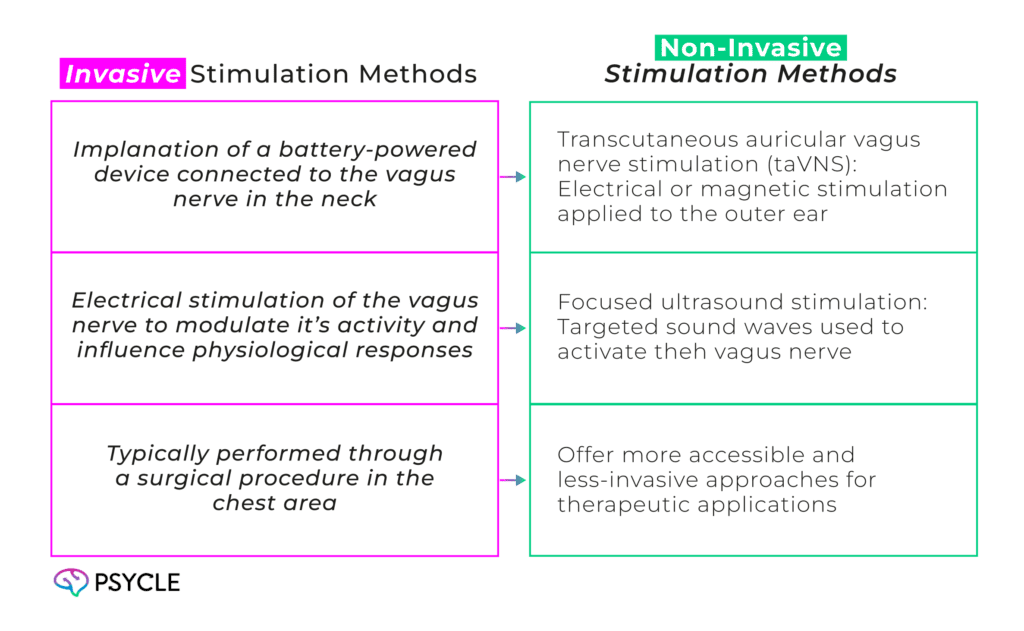The vagus nerve plays a big role in making sure our body works right. By understanding how it works, we can learn about anxiety, depression, and staying healthy. We will talk about how it helps our brain and body. Also, we will see how using this nerve in treatments can help with many health issues.
Key Takeaways
- The vagus nerve is the longest and most complex of the 12 cranial nerves, connecting the brain to numerous vital organs.
- The vagus nerve plays a crucial role in regulating the body’s “rest and digest” functions, including heart rate, breathing, and digestion.
- Disruptions in vagus nerve function have been linked to the development of various mental health conditions, such as anxiety and depression.
- Vagus nerve stimulation, both invasive and non-invasive, has emerged as a promising therapeutic approach for managing conditions like anxiety, depression, and inflammatory disorders.
- Ongoing research continues to uncover the vagus nerve’s involvement in other mental health conditions, such as schizophrenia and post-traumatic stress disorder (PTSD).
Introducing the Vagus Nerve
The vagus nerve is also called the tenth cranial nerve. It is the longest and most complex of the 12 cranial nerves we have. Starting in the brainstem, It goes through the neck, then the chest, and finally reaches the belly, linking the brain with important organs. This nerve is key for controlling things like heart rate, breathing, and digestion.
The Longest Cranial Nerve
This nerve is the main link between the brain and our internal organs. It has many fibers that connect our brain to our organs, allowing it to share messages both ways. It takes signals from organs to the brain and sends orders from the brain to the organs. As a result, the vagus nerve is like an “information superhighway” in our body. This back-and-forth keeps the body working well.
Connecting the Brain to the Body
The vagus nerve talks to key organs like the heart, lungs, and stomach. This makes it a big part of the autonomic nervous system. It helps control things like heart rate, breathing, blood pressure, digesting food, and even fighting off sickness. By sending and receiving signals, the vagus nerve is crucial for keeping us healthy.
Significance in Emotional Regulation
The vagus nerve plays a big role in how we feel emotionally because it’s. It’s linked to a part of our brain that handles emotions. This connection affects our mood, anxiety, and general emotional health.
Problems with the vagus nerve can be tied to conditions like depression and anxiety. So, it is important for our emotional well-being.

Vagus Nerve and Digestion
The vagus nerve is key in how our guts work. It sends messages to our stomach and bowels from the brain. This helps with stomach and intestine movements, making and using digestive juices, and taking in nutrients. The link between the vagus nerve and digestion is vital for good gut health.
If the vagus nerve isn’t working right, it can cause tummy troubles like gastroparesis and irritable bowel syndrome (IBS). Gastroparesis makes food move too slowly from the stomach. IBS brings pain, gas, and changes in how often you go to the bathroom. Knowing the vagus nerve’s role can help doctors treat these problems.

Knowing about the vagus nerve’s role in digestion can lead to better ways to treat gut problems. Health experts can use this info to find new treatments which could help make our gut and general health better.
Vagus Nerve and Depression
Research shows a strong link between the vagus nerve and mental health. This is especially true for depression. The vagus nerve helps control the body’s response to stress. It also affects the levels of chemicals like serotonin and dopamine in the brain.
These roles are key in how depression begins and worsens. Studies find that people with depression may have a less effective vagus nerve. This means that working on the vagus nerve might be a new way to treat depression.
Link Between Vagus Nerve and Depression
The vagus nerve is closely tied to the brain’s limbic system. This system handles our emotions. When the vagus nerve doesn’t work properly, it can lead to depression. The nerve might not send as many calming signals as it should. As a result, it’s hard for the body to feel good. Researchers are now looking into whether fixing the vagus nerve can help treat depression.
Vagus Nerve Stimulation for Treatment-Resistant Depression
Researchers are finding new ways to treat depression that doesn’t respond to usual therapies. Specifically, they are looking at vagus nerve stimulation. By stimulating the vagus nerve, either inside or outside the body, some people feel better. Mood improves, depression symptoms decrease, and emotion control gets better.
These changes have shown up in tests. As a result, the FDA permits using vagus nerve stimulation for certain depression types.
The Vagus Nerve and Anxiety
The vagus nerve is key in controlling anxiety and how we react to stress. It connects to parts of the brain that manage our feelings, like fear and planning. So, if the vagus nerve isn’t working right, it might make us more anxious.
The Role of the Vagus Nerve in Anxiety Disorders
The vagus nerve is important for our stress response. It kicks off changes in our body when it senses danger, like making our heart pound. But in people with anxiety disorders, these changes can get out of hand, making them feel scared and worried all the time.
Vagus Nerve Stimulation for Anxiety Management
Many are looking into using vagus nerve stimulation to help with anxiety. These techniques aim to fix how the nerve handles stress, which could lessen anxiety. Right now, experts are studying this for different anxiety conditions, like generalized anxiety disorder, social anxiety, and PTSD.
Vagus Nerve and the Immune System
The vagus nerve is key in how our immune system and body deal with inflammation. It’s part of a system called the “inflammatory reflex.” This system lets the vagus nerve find and react to inflammation in the body. When inflammation is found, the nerve can send signals that reduce the body’s inflammatory response.
This link between the vagus nerve and our immune system matters because it deals with conditions caused by too much inflammation. This includes autoimmune diseases and issues like depression that are tied to inflammation.
Vagus Nerve Stimulation for Inflammatory Conditions
Scientists are looking into using vagus nerve stimulation to treat inflammation. By stimulating the vagus nerve directly, they’ve seen a drop in harmful proteins that cause inflammation. They’ve also noticed the body can keep its inflammation in check better.
This type of treatment looks hopeful for conditions such as rheumatoid arthritis and Crohn’s disease. It may even help with mental health conditions like depression and anxiety that involve inflammation.
Vagus Nerve Stimulation Techniques
Vagus nerve stimulation can be done in various ways, including some that need surgery. For example, a small device can be put in your chest. It is battery-powered and sends electrical signals to the vagus nerve in your neck.
This helps control the nerve’s activity, affecting how your body responds, especially to mental health and inflammation issues.
Non-Invasive Stimulation Methods
Experts are also looking at ways to stimulate the vagus nerve without surgery. They have found some interesting methods. One method is through your outer ear using electrical or magnetic signals. The other method uses sound waves to activate the nerve. These ways are much easier and don’t involve cutting into your body.

Emerging Research on the Vagus Nerve
The vagus nerve’s impact goes further in mental health than just anxiety and depression. New studies are looking into its role in conditions like schizophrenia and PTSD. Now, scientists are seeing if stimulating the vagus nerve could help treat symptoms of schizophrenia, psychosis, and post-traumatic stress disorder (PTSD).
Vagus Nerve and Schizophrenia
The vagus nerve might play a big part in the start and progress of schizophrenia. When the nerve doesn’t work right, it throws off the body’s auto-pilot system. This might help cause the signs of schizophrenia, such as thinking problems, seeing or hearing things that aren’t there, and strange beliefs.
Scientists are testing ways to target the vagus nerve, with the hope it could ease these tough symptoms.
Vagus Nerve and Post-Traumatic Stress Disorder (PTSD)
The vagus nerve is linked to how our brain and body handle fear and stress. So, scientists wonder if it could also be a factor in PTSD. People with PTSD often have issues with the body’s auto-pilot system. This is where the vagus nerve comes in.
There are now trials to see if stimulating the nerve can help with PTSD. The goal is to help the body better control stress and emotions, bringing relief to PTSD sufferers.
Conclusion
The vagus nerve is truly remarkable because it controls many things in our body and mind. It is very important in the body’s autonomic nervous system. We now know it is linked to conditions like anxiety and depression. Researchers are studying ways to use the vagus nerve to help with these issues.
Learning more about the vagus nerve offers exciting possibilities. With more study and use of this nerve, big changes in healthcare could happen. This could lead to more focused medical treatments for everyone.
By using its power, we could better manage both mental and physical health problems. This might lead to a happier, healthier life for many.
FAQs
What is the Anatomy and Function of the Vagus Nerve?
The vagus nerve starts in the brain and goes to the abdomen. It links the brain to important organs. It helps control the heart, breathing, and digestion.
How Does the Vagus Nerve Influence the Immune System and Inflammation?
The vagus nerve is key in how the immune system reacts. It can pick up on inflammation and send signals to reduce it. This is known as the “inflammatory reflex.”
What are the Different Methods of Vagus Nerve Stimulation?
Vagus nerve stimulation uses many methods. These include surgery to implant a device, or non-invasive ways. An example is taVNS or using ultrasound.

